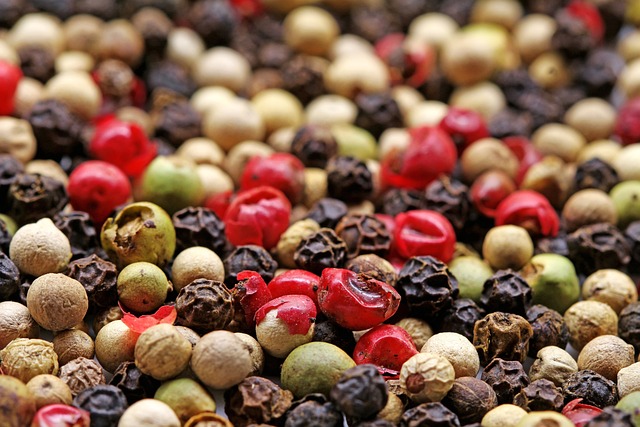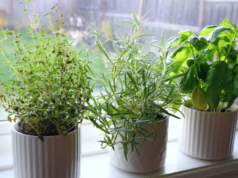Contents
Malabar Peppercorns: A Sustainable and Ethical Spice Option
Malabar peppercorns are a popular spice option that not only adds a distinctive flavor to dishes but also comes with sustainable and ethical benefits. Derived from the vine Piper nigrum, these peppercorns are primarily cultivated in the Malabar region of India.
One of the key reasons why Malabar peppercorns are considered a sustainable option is their cultivation methods. The farmers in the Malabar region employ organic farming practices, avoiding the use of harmful pesticides and fertilizers. This ensures that the peppercorns are free from harmful chemical residues, making them a healthier choice for consumers.
In addition to being sustainable, the cultivation of Malabar peppercorns also follows ethical principles. The farmers receive fair compensation for their labor and work in healthy and safe conditions. This ensures that the production of these peppercorns supports livelihoods and contributes positively to the local economy.
Malabar peppercorns are known for their strong and bold flavor, making them a versatile spice that can be used in various culinary creations. From adding a kick to soups and stews to enhancing the taste of marinades and sauces, these peppercorns are a staple in many kitchens.
By choosing Malabar peppercorns, you not only elevate the taste of your dishes but also support sustainable and ethical practices in the spice industry. So, next time you reach for a peppercorn grinder, consider opting for the Malabar variety.
Malabar Peppercorns: A Sustainable and Ethical Spice Option
Introduction
Insert a captivating and informative introduction here.
What are Malabar Peppercorns?
Start by explaining what Malabar Peppercorns are, where they come from and their significance in the culinary world.
The Sustainability Factor
Highlight the sustainable aspects of Malabar Peppercorns, such as their organic farming practices, minimal environmental impact, and fair trade initiatives.
Benefits of Choosing Malabar Peppercorns
Discuss the various benefits of using Malabar Peppercorns, including their unique flavor profile, versatility in recipes, and potential health benefits.
How to Use Malabar Peppercorns
Share some creative and easy-to-follow recipes that showcase the best use of Malabar Peppercorns. Include both traditional and unconventional recipes.
Where to Buy Malabar Peppercorns
Provide suggestions on reliable sources to purchase high-quality Malabar Peppercorns, such as local spice stores, reputable online retailers, or directly from fair trade organizations.
Supporting the Local Community
Emphasize the positive impact that purchasing Malabar Peppercorns can have on local communities and farmers who depend on the spice trade for their livelihood.
The Future of Malabar Peppercorns
Give insights into the future of Malabar Peppercorns, potential challenges, and exciting developments in the cultivation and trade of this sustainable spice.
Conclusion
Summarize the key points discussed, reiterating the sustainable and ethical aspects of Malabar Peppercorns and encouraging readers to consider this spice for their culinary endeavors.
Related Posts:
- The Unique Flavor Profile of Malabar Peppercorns
- Supporting Fair Trade: Malabar Peppercorns and Farmer Communities
Frequently Asked Questions – Malabar Peppercorns: A Sustainable and Ethical Spice Option
What are Malabar Peppercorns?
Malabar Peppercorns are a type of high-quality peppercorn variety native to the Malabar Coast in Southwest India. They are renowned for their strong aroma, distinctive flavor, and rich black color.
Why are Malabar Peppercorns considered a sustainable spice option?
Malabar Peppercorns are considered sustainable because they are produced using organic farming practices that prioritize soil health, biodiversity, and water conservation. Additionally, these peppercorns are cultivated using traditional methods that minimize environmental impact.
How are Malabar Peppercorns grown?
Malabar Peppercorns are grown on large vine-like plants called Piper nigrum. The plants require a warm and humid climate, which makes the Malabar Coast an ideal location for their cultivation. The peppercorns are harvested and dried to preserve their taste and aroma.
Are Malabar Peppercorns ethically sourced?
Yes, Malabar Peppercorns are ethically sourced. The farmers who grow these peppercorns are paid fair prices for their produce, ensuring a sustainable livelihood. They are also involved in producer co-operatives that promote fair trade practices and provide support to small-scale farmers.
What dishes are Malabar Peppercorns commonly used in?
Malabar Peppercorns are versatile and can be used in a wide range of dishes. They are commonly used in curries, marinades, spice rubs, and soups to add a robust flavor and a hint of heat. They can also be ground and used as a finishing spice to enhance the taste of various dishes.
Where can I buy Malabar Peppercorns?
Malabar Peppercorns can be found in specialty spice shops, gourmet stores, and online retailers that specialize in high-quality spices. It’s important to look for reputable sources that ensure the peppercorns are sustainably and ethically sourced.
How should I store Malabar Peppercorns?
To maintain their freshness and flavor, it is best to store Malabar Peppercorns in an airtight container in a cool, dark place. Avoid exposing them to direct sunlight or moisture as it can cause them to lose their potency.
Are Malabar Peppercorns suitable for all dietary preferences?
Yes, Malabar Peppercorns are suitable for all dietary preferences. They are vegan, gluten-free, and contain no additives or preservatives. However, it’s always a good idea to check the packaging and verify any potential allergen cross-contamination.
About Malabar Peppercorns
Overview
Malabar peppercorns are a variety of black peppercorns that are primarily sourced from the Malabar coast of India. These peppercorns are known for their robust flavor and distinct aroma, making them highly sought after in both culinary and medicinal applications.
Origin and Growth
The Malabar coast of India, specifically the state of Kerala, is renowned for its ideal climate and fertile soil, which promote the growth of high-quality peppercorns. The region’s unique combination of tropical rainfalls and humidity provides the perfect conditions for the peppercorn vines to thrive.
Flavor Profile and Culinary Uses
Malabar peppercorns are characterized by their bold and spicy flavor, with hints of citrus and woodiness. They have a medium heat level, making them suitable for a wide range of dishes. Additionally, these peppercorns are versatile and can be used in various forms, including whole, coarsely ground, or finely powdered.
Medicinal Benefits
In addition to their culinary uses, Malabar peppercorns are known for their potential health benefits. They contain a compound called piperine, which has antioxidant and anti-inflammatory properties. Consuming Malabar peppercorns may aid digestion, improve nutrient absorption, and provide relief from certain respiratory conditions.
If you want to learn more about Malabar peppercorns, you can visit the Wikipedia page on peppercorns.
Malabar Peppercorns
-
Sustainable Spice Option
Malabar Peppercorns are sourced from sustainable cultivation practices that prioritize environmental conservation.
-
Ethical Harvesting Processes
The peppercorns are hand-picked by local farmers, ensuring fair wages and supporting the livelihoods of rural communities.








































